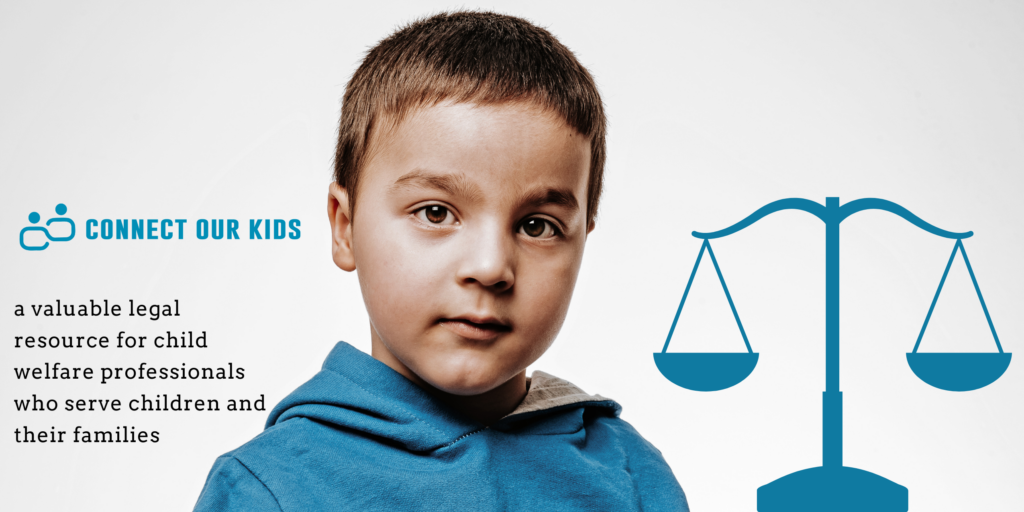When considering relative placement versus foster care, the decision often comes down to available kinship options and the best interest of the child. Often kinship, or relative placement, turns out to be more beneficial for the child in need of care.

Kinship Care and the Child Welfare System
The Child Welfare System
Child welfare systems nationwide advocate for children. However, specific processes and regulations may vary depending on the state. Typically, they are managed and coordinated by public agencies such as Departments of Family and Children’s Services and Departments of Social Services.
Caseworkers from these agencies are responsible for overseeing the well-being, safety, and permanent living arrangements for children. Their job may also include investigating child neglect and abuse reports and arranging for services for kids and families.
In addition, caseworkers can also assist parents by providing assistance in finding resources to help build protective factors such as social connections and parental resilience. If a caseworker cannot ensure the child’s safety and care at home, alternative living arrangements must be considered.
Kinship Care
When children cannot lead a safe and healthy life with their parents, kinship care is the preferred resource. These relatives and trusted adults are often already invested in the child’s life and wellbeing. This investment starts off with a stronger bond which increases the likelihood that placement will work out. For the most part, children do better with someone known to them rather than a foster family. Kinship care helps maintain the children’s connections with their family, community, and culture—which helps minimize the trauma of parental separation.
Kinship care can be provided by relatives (people related by blood or marriage) or fictive kin (people who are not related by blood but are so closely connected that they can be considered family).
Kinship care arrangements are divided into three categories:
- Informal: Made by families, with or without legal recognition.
- Voluntary: Children most often are not in formal foster care but have come to the attention of the child welfare agency.
- Formal: Children are in the legal custody of the child welfare agency but are living with kinship caregivers that are licensed or unlicensed.

Child Welfare System and Kinship Care
Child welfare systems can be involved with kinship care. This often varies from state to state since each state has its own practices and laws.
Child welfare agencies may direct children to kinship care for various reasons, including abandonment, abuse, neglect, incarceration or arrest of their parent(s), death of their parents, or extreme parental illness.
Also, agencies may be directly involved with kinship contacts. This may happen when parents leave their children with an agency and the kin contact the child welfare system later when they can no longer provide care for the kids.
Relative Placement: The Pros and Cons
Relative Placement
When a child’s biological parents cannot care for them, one of the best outcomes for that child is to stay with a relative or close family friend instead of being placed in a foster home. While the pros are abundant, some cons could outweigh the good. This all depends on the specifics of each individual case.
Pros
- Minimize the Trauma of Family Separation
Children and adolescents experience traumas when they are involved in abuse, neglect or are removed from parental care. Trauma can be physical, emotional, or both and interfere with the children’s mental health. Although the trauma may have been initiated in the biological home, the removal from their home and possible subsequent moves while in foster care, are also traumatizing. Receiving care from relatives allows these children to continue to draw on familiar connections and support. As a result, it can help children recover from past trauma.
A kin caregiver is familiar with the child’s family history. This allows the kin caregiver to comfort children by telling them stories about their parents. For example, a grandmother might ease a child’s fears by recognizing positive traits the child is exhibiting from their biological parents. This also helps children continue to feel bonded with their biological parents.
- Preserve Cultural Identity
Living with kin allows children to strengthen and preserve their cultural identities by maintaining connections to their ethnic or social culture and communities. Examples of this identity come through the language spoken, tribal or ethnic group heritage, holidays celebrated, familiar foods, and clothing choices.
In fact, informal kinship care (relative placements that do not involve child welfare systems) has been a long tradition in many cultures.
- Increase Placement Stability
With kinship care placement, children are less likely to be transferred to foster families or multiple homes.
- Overall Better Well Being and Enhance Behavioral Outcomes
Often when children are removed from their biological homes, they are confused, upset, and scared. This can lead to understandable anger and negative behaviors. However, when children are placed with kin, they tend to feel more comfortable and display fewer behavioral problems than those in traditional foster care.
- Boost Sibling Ties
Kinship care often encourages children to live with or stay in contact with their siblings. There is no denying that children’s relationships with their siblings are often the longest-lasting ones. Moreover, these relationships can continue (when it is safe to do so) even when children are separated from their parents.
If it isn’t possible to provide a home for all the siblings within a family, it is essential to help the child stay in touch with their siblings as well as other relatives. These ties will provide some permanency and stability to the child.
Cons
- Unauthorized Contact with the Birth Parents
As an example, a grandparent who is the kin caregiver may have a hard time telling the mother that she can’t see her child or enforcing other child welfare guidelines.
- Kin Caregivers are not Fully Prepared to Deal with Children’s Special Needs
Neglected and abused children often have special needs that a kin caregiver may not understand or be equipped to handle. Often kin caregivers go into it thinking that being with someone familiar that loves them is enough to stop any undesirable behavioral effects from trauma.
- Kin Caregivers May be Unable/Unwilling to Obey the Additional Demands of the Child Welfare System.
When kin caregivers receive a child, they may be asked to follow specific rules to meet child welfare guidelines. It may be difficult for some family members to accept these demands and restrictions such as locking up all medications, not allowing unapproved household members to care for children while the main caregiver is out, fire safety plans, sleeping arrangements, having transportation and time to bring a child to all their required mental health services, visitations with biological parents, and more.

Foster Care
While the pros of relative placement heavily outweigh the cons, there may be some cases when relative placement may not be possible. In these situations, placement with foster families would come into play. Important to note: kinship contact may still play a role in providing emotional support and connections to children.
Pros
- Reach and Coverage
The foster care system in the U.S. was created to assist children who have been abused, abandoned, neglected, or are unable to be cared for by their biological parents.
It also handles the countless children whose parents have disappeared or who have been incarcerated for whatever reason.
- Care by Foster Families
By entering the foster care system, children’s care and needs are usually met by foster families. These families have been trained to understand the psychology and needs of these children and have access to resources to provide help and support.
Cons
- The Foster Care System is Overwhelmed
Many children in foster care are placed with families without abundant financial resources, leading to a lack of support for these kids. In addition, children may be subjected to frequent moves to different homes, leading to more trauma for them.
- Teenagers Leave the Foster Care System without Proper Support
When children grow up in foster care or enter into foster care as teenagers, they run the risk of aging out of the system, leaving them without permanency and support.
- The System Comes Up with Various Regulations and Rules
Many children feel dissatisfied and frustrated with the foster care system and their foster placements because they are constantly under surveillance. These children may be bound by many rules and regulations of foster care as well as changing rules and expectations by their foster families.
Which Option Is Suitable for Children in Need of Care?
Relative placement or kinship care is prioritized when considering what is best for a child. It will benefit those kids in terms of support and community and is more likely to lead to a safe and stable permanent home.

Conclusion
Connect Our Kids uses technology tools to help child welfare professionals identify kinship connections and gather contact information quickly. We know that when the extended family is engaged, a child’s chances of permanency and developing a sense of belonging dramatically increase. These relationships and connections help heal trauma. We provide our technology platform free of charge to social workers, lawyers, family recruiters, and CASA volunteers to help improve the lives of children in the foster care system. To learn more about our work, visit ConnectOurKids.org.


